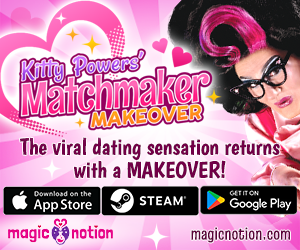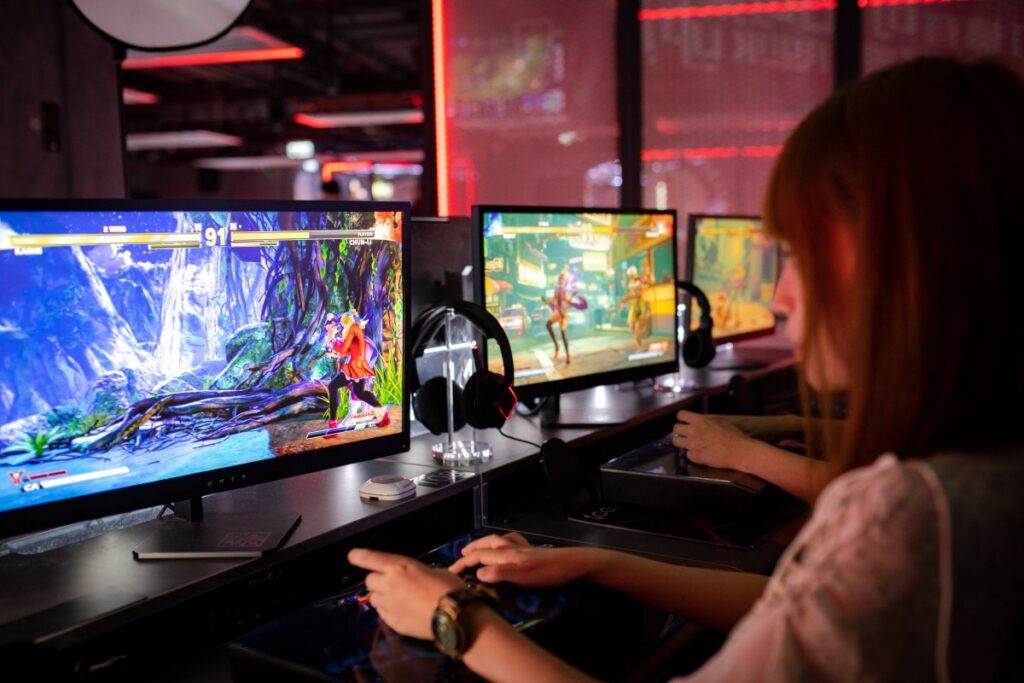
The positive impact video games have on disabled, queer gamers
It’s no secret that video games have an enormous impact when it comes to mental health and the disabled. Games create an escape where people can find comfort in playing them, especially those who live with disabilities or are searching for a home in their queer communities. Sometimes, it’s both.
According to Megan Brooks from MedScape, “playing a video game causes positive structural brain changes in regions responsible for spatial orientation, memory formation, strategic planning, and fine motor skills, with potential implications for psychiatric disorders, new research suggests.” Thus, for those with mental or physical disorders, playing games can be that much more impactful on their health.
While it’s not groundbreaking that gaming helps those who are disabled and brings together members of queer communities, it is something that is not highlighted enough. Enter: Ablegamers Foundation. Founded by Mark Barlet, who is a disabled gaymer himself, Ablegamers strives to improve the quality of life for those who are disabled through the power of gaming. The foundation not only exists to help amplify those in the disabled gaming space, but is a safe play for queer people as well.
Gaming helps people with disabilities of all kinds. Dr. Amy Kavanagh is a bi/pan gamer who is blind/visually impaired. Kavanagh says that video games, “[have] a hugely positive impact, gaming helps my mental health, it helps me find a community and it’s just really fun! Video games allow me to enjoy a virtual world that is often denied to me in life. Plus I love advocating for increased accessibility, the games industry is really receptive and it’s a fantastic opportunity.”
Likewise, pansexual gamer Missy also lives with several disabilities, such as: Postural Tachycardia Syndrome (PoTS), Generalised Anxiety Disorder, Chronic Depression, PTSD, and more. Missy says that gaming has been a lifeline.
“The delayed sleep phase disorder means I don’t run on a normal 24 hour clock like everyone else as my sleep wake cycle rotates, so there are days where I’m up through the night and days where I’m up in the day, and everything in between, with zero control over it,” Missy told me. “Games don’t rely on set times; I can play when I’m awake, whenever that is. If I’m experiencing PEM (post exertional malaise) or brain fog I can play a simple, low impact, single player game. If I’m feeling more awake and sociable, I can play multiplayer games, and somewhere in the world, someone will be awake to join me. Gaming also helps distract me from chronic pain; my pain always feels at its worst when I don’t have something to concentrate on, but I can really lose myself in a game – which is a big help.”
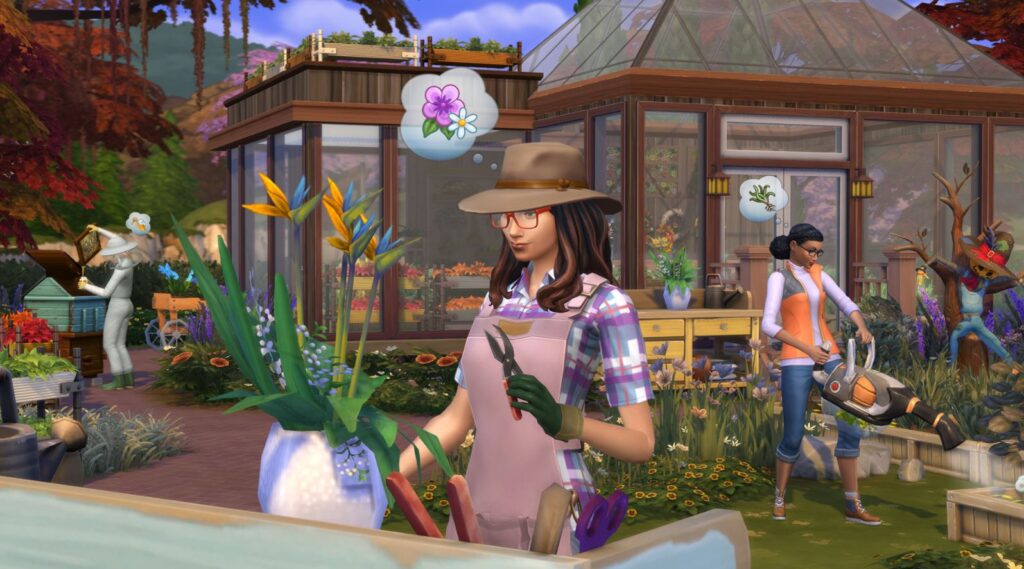
While Missy plays video games every day they are able, sometimes 10 hours at a time, Kavanagh plays 12-20 hours a week. Game time will be different for every person, but can still have as essential of an impact on each player. Both Kavanagh and Missy have been encouraged to get into gaming to help with their disabilities and give them a sense of community.
“I was born visually impaired,” Kavanagh said. “I was encouraged to play games to improve my hand eye coordination when I was about 9 or 10.”
Similar to Kavanagh, Missy has been gaming since they were 15 and before she was officially diagnosed with their disabilities. She found a love of The Sims and has been playing it for over 17 years. Missy has been encouraged by medical professionals to continue playing games, as they remain a positive outlet.
“For the past 3 years i’ve had a psychotherapist, and he’s been fantastic,” Missy said. “He encourages my gaming, absolutely. He was essential in helping me not to feel guilty about spending hours playing. I’d get stressed and guilty, thinking things like ‘other people have to go to work while I can stay home and play games, I’m a fraud.’ He helped me see things objectively: other people can take a shower without needing to lie down afterwards, or be bed bound for days just because they washed their hair. Other people could load any new game and learn it then and there; I have to wait, sometimes for literal years, for a ‘good’ time to learn that new system. It took a lot of talking, but now I feel comfortable with my gaming. There’s so much I can’t do anymore, but this I can, and that’s a good thing, not something to feel guilty about.”
For those like Kavanagh and Missy, it can feel very isolating to be disabled in a lot of spaces. However, gaming has become something that not only helps with their disabilities, but also gives them an outlet to express themselves exactly as who they are; it provides comfort in an otherwise uncomfortable world.
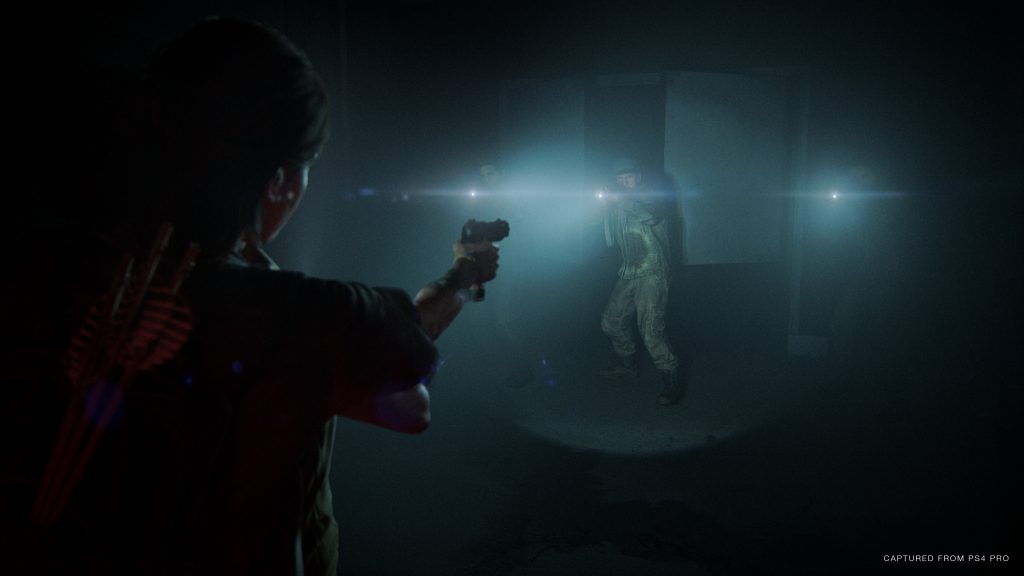
Kavanagh refers to gaming as her happy place. “[Gaming is] a huge comfort, it helps me distract myself from anxiety, I have fun, I enjoy a challenge, I chat with my friends, it’s my happy place!”
While Missy says, “I joke that my ‘desert island’ item would have to be a magically powered, sand and waterproof PC with modded games and spare parts for contingency. Gaming is practically essential to my well-being.”
Likewise, gaming has provided both Kavanagh and Missy with a community of their LGBT+ peers, that makes them feel at home. Missy has even found other disabled LGBT+ gamers to chat with and form a happy corner of the internet around.
“I have found some amazing queer and disabled gaming youtubers/streamers to follow, and have found a nice network of people to chat with surrounding them,” Missy said. “For example, Laura K Buzz is an autistic trans gamer who does various video essays, TikToks’, streams and tweets, including a series on accessible gaming that is absolutely amazing. I’ve had some great conversations with people in and around her content. Same for Jim Sterling, who has ADHD and is non-binary. I’ve found people to follow and chat with in their audiences, especially on Twitter.”
While there are many disabled LGBT+ gamers out there, it’s not just disabled queer people out there that have welcoming gaming community. Missy also finds that most queer gamers have been extremely accepting, even those without disabilities.
“In general I have found that the audiences for LGBTQIA+ gamers are a pretty open minded, welcoming bunch,” Missy said. “In my experience when I’ve met a non disabled gamer from the queer community, and then disclosed my disabilities, I’ve received nothing but solidarity. Sure there are moments where people clearly don’t fully grasp my situation, or use phrases like ‘differently abled’, which is something I and a lot of the disabled community do not like, but it’s never been malicious. I feel much more comfortable speaking about my disabilities in queer gaming spaces as opposed to regular gaming spaces, as there’s this general feeling of ‘we’re already a group of people society deems as different or less than, so what’s another difference?’”
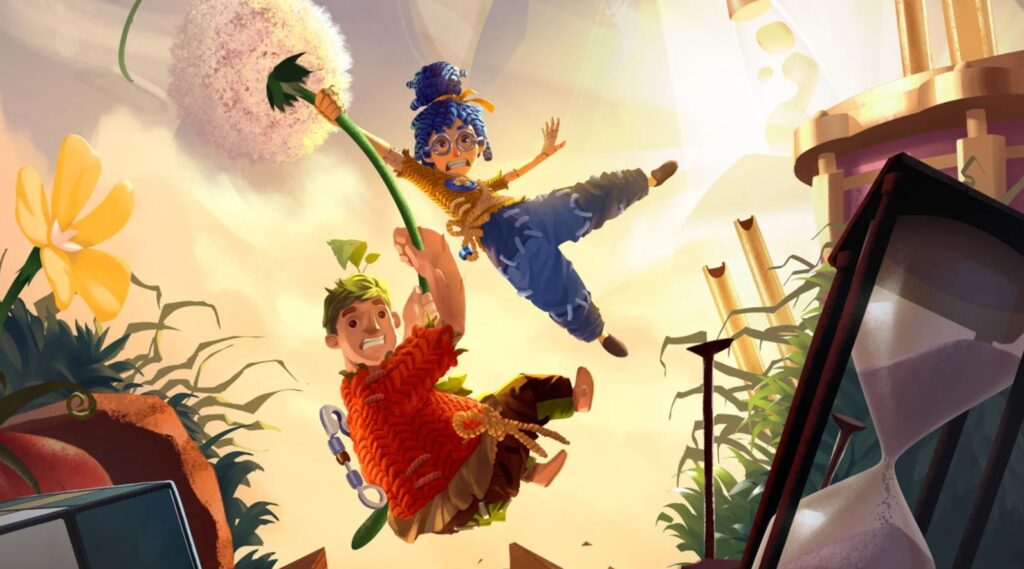
As for Kavanagh, she has found queer solace in her Twitch community. Kavanagh says that her community is a growing space for those in the LGBT+ realm, and it has grown in ways she never expected. Apart from her Twitch chat, however, Kavanagh has said they’ve not always felt accepted in queer spaces for being disabled, as many communities are not accessible to disabled individuals
While the gaming community has not always been accessible for those with disabilities, Kavanagh does believe that accessibility is becoming more common, like in her Twitch community. According to Kavanagh, “gaming accessibility is a growing industry, with amazing disabled advocates working with game developers and studios to improve games for everyone. Game studios are realising that disabled people are a great new market, and it makes financial sense to be accessible. I knew blind people who bought a PlayStation just to play The Last of Us 2. It’s a billion dollar industry that is getting passionate about accessibility, it’s so exciting and could inspire other tech giants to get onboard.”
Video games are home. They provide comfort, safe spaces, and accessibility to those that need it. People often talk about the negative sides of gaming, like how it causes antisocial behavior or encourages violence. While that may or may not have truth to it, the positive impacts far outweigh those stereotypes, especially for those who go through life with disabilities. What some may see as antisocial behavior, those with disabilities see as a place that allows them to rest, take up space, and exist as who they are. Likewise, for those in the LGBTQIA+ communities, it creates a similar happy place. Both Missy and Kavanagh have found a safe place for themselves as disabled people, and queer people alike. Missy finds comfort in other diabled queer gamers and her fellow queer community, while Kavanagh is a trailblazer for the queer community on Twitch, also creating a space for disabled gamers aliek. Kavanagh and Missy both fall into the disabled and queer categories, and are amazing examples of the positive impact of video games across the world. We love to see it!
This article was first published in April 2021

